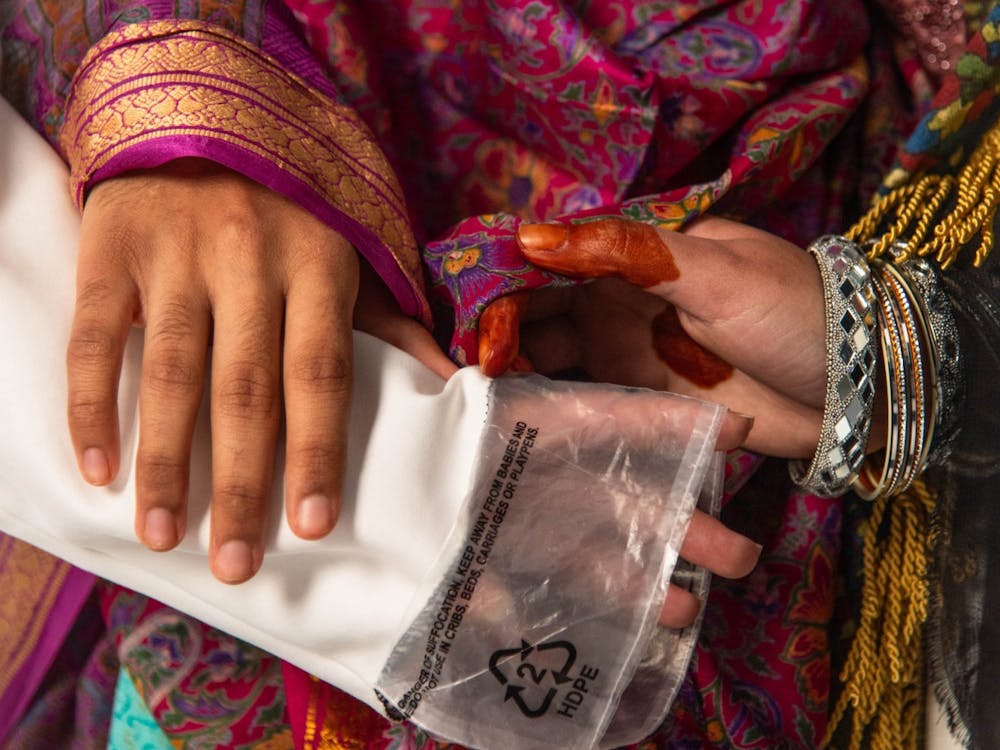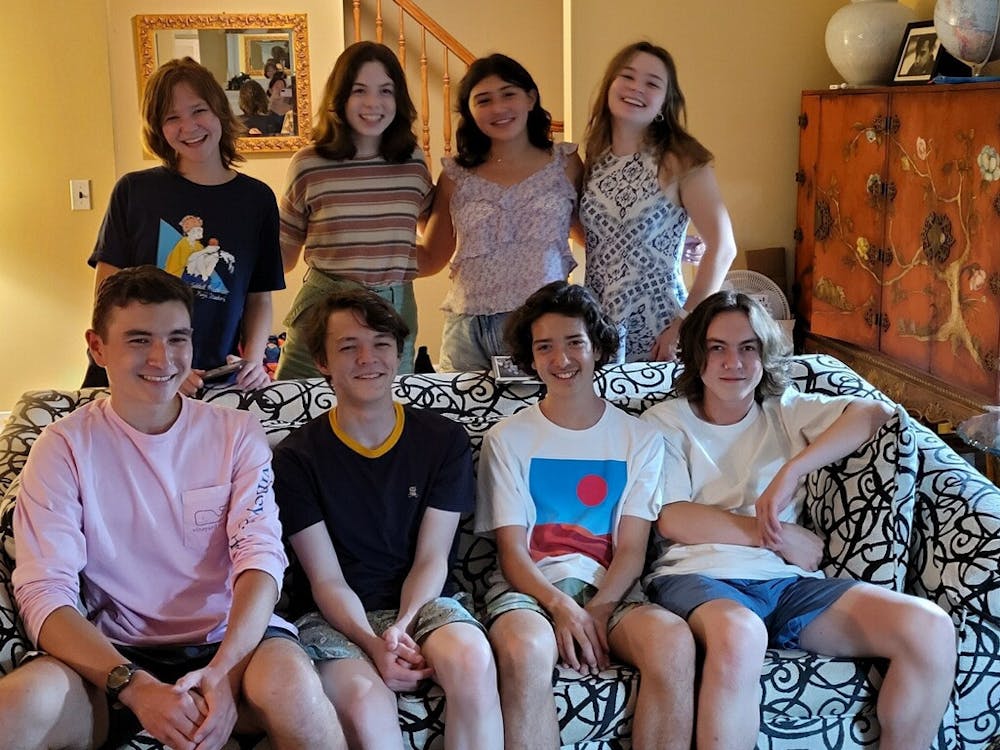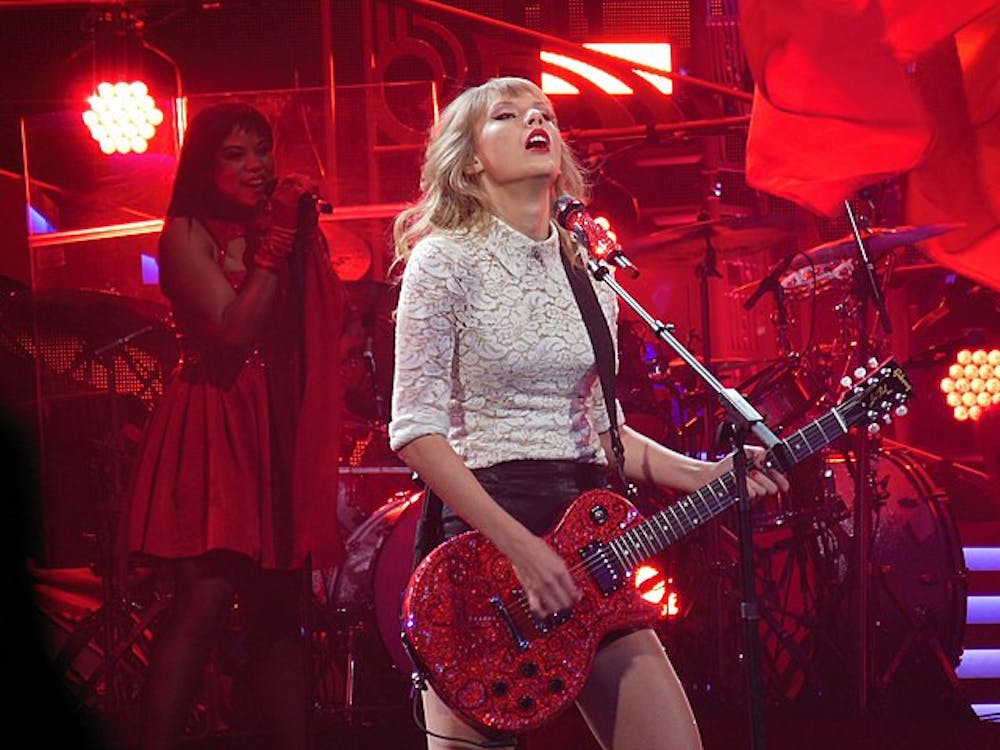This may be an article for the Arts & Entertainment section but allow me to share some world news with y’all before I launch into my theater review. (Please bear with me and my metanarrative.)
A couple of weeks ago, the Chinese government banned George Orwell’s 1945 novella Animal Farm, a satirical allegory of Stalinism. It appears that President Xi Jinping ordered a sweeping online censorship crackdown with hopes of quelling criticism and dissent after the ruling Communist Party proposed the abolition of presidential term limits that had been established in the 1980s to ensure that another Mao Zedong would never rise to power.
On March 11, 99.8 percent of the delegates at the National People’s Congress in China approved the plan, thereby enabling the indefinite extension of Xi’s tenure.
Just one day before, I had gone to Mount Vernon and seen Ian Wooldridge’s adaptation of Animal Farm — directed by May Adrales and stage managed by Jacqueline Singleton — at Maryland’s state theater, Baltimore Center Stage. (The Office of the Dean of Student Life and the Parents Fund sponsor Hop Art, which provides Homewood undergraduates the opportunity to receive free tickets to attend concerts, plays and musicals in Baltimore.) The show was co-produced by the Milwaukee Repertory Theater.
While fighting in the Spanish Civil War, democratic socialist Orwell began to observe injustice and abuses of power. He grew critical of the Soviet regime’s ideals, with which he had once been so enamored.
Animal Farm, as he described in a later essay, was the first book in which he made a conscious endeavor to “fuse political purpose and artistic purpose into one whole.” He sought to illustrate the genesis of dictatorship.
He once recounted watching a little boy whipping a horse whenever it tried to turn. This moment made him recognize that “men exploit animals in the same way as the rich exploit the proletariat.”
In Animal Farm, anthropomorphized animals revolt against their masters. The play begins with Major (Stephanie Weeks), an old boar who represents Karl Marx and Vladimir Lenin, narrating a dream to all the animals on Manor Farm. After his death, Major’s words catalyze the others to rebel against and exile the farm’s owner.
Snowball (Brendan Titley), inspired primarily by Leon Trotsky, and Napoleon (Melvin Abston), inspired by Stalin, assume leadership of the farm and rechristen it Animal Farm, for it will now be operated under the seven commandments of Animalism.
All animals are comrades; “all animals are equal.” Napoleon steals Snowball’s idea to build a windmill and banishes him. Napoleon and his fellow pig, the humorous minister of propaganda Squealer (Tiffany Rachelle Stewart), promise everyone a higher quality of life but quickly begin to overwork and manipulate the less literate and less intelligent animals. Horse Clover (Deborah Staples) delivers a particularly evocative performance as she somewhat recognizes that the increasingly tyrannical pigs violate their own laws and succumb to the same human vices they condemned.
At Clover’s request, the cynical and wise old donkey Benjamin (Jonathan Gillard Daly) reads the ever distorting list of commandments. For example, the consumption of alcohol was once outlawed completely but is now forbidden only in excess.
Eventually, “all animals are equal, but some animals are more equal than others,” and Animal Farm is restored to Manor Farm when the pigs, dressed as humans and standing on two legs, invite neighboring farmers over to trade. They serve a roasted pig.
The production was breathtaking; the man sitting to my right said “Oh my God” five times throughout the play. Designers Noele Stollmack, Andrew Boyce, Nathan A. Roberts and Charles Coes phenomenally used light, set and sound, respectively, to emphasize the decadence of the pigs and magnify the consequent desperation and eeriness.
The costumes, too, heightened the emotional dynamic of the show. Each actor held a personalized animal mask (by use of expression, shape and materials, mechanism and silhouette), and some held additional props, such as a horse tail and a donkey leg cane. In the program, Costume Designer Izumi Inabi explained some of her creative choices.
“I wanted us to feel the animals as abandoned and broken, and May felt that it was important for us to see the actors’ faces fully all the time,” she said. “Much of the inspiration came from oppressed workers in many different countries during the Communist era. I wanted to reflect their struggles in how I represented the animals. They became a fun mix of costume craft, props, and puppetry — and our actors also weighed in with their thoughts on their animals... I strongly believe this collaboration was the key ingredient for the successful execution of the design.”
Adrales wrote that she and the artistic team translated images from the Bolshevik Revolution, Tiananmen Square, the Ukrainian Maidan Revolution, the Civil Rights Movement, Ferguson and Black Lives Matter, the Women’s March, and other political rallies to the stage.
She added that the play encapsulates the inevitable betrayal of all political revolutions’ “ideals of justice, equality, and fraternity” and argued that the narrative is as relevant now as it was when first published over 70 years ago. There will always be pigs that seek to create mass confusion by disparaging the opposition, cultivating fear and propagating fake news.
“The cruel repetition of history reminds us how tenuous and fragile human freedom is,” she wrote. “Revolutions are only successful when the masses have the education to be alert and can be ready to speak out.”
Thinking critically about government is our only ammunition against totalitarianism. The theater’s Executive Director Michael Ross invited audience members to participate in, as Adrales wrote, “an engagement of ideas.”
“The beauty of live theater is that, like Orwell, we can use our art as a vehicle for awareness and education, and even sometimes for change,” she wrote.
First year graduate student Kemi Oguntona enjoyed how the show employed artistic expression to reflect on real life and depict hypocrisy.
“You start to make excuses because it benefits you... The show tells us it is very important to question ourselves and the people around us when it comes to information and to constantly check what you believe,” she said.
Senior Dikachi Osaji felt that the play was a compelling rendering of Orwell’s vision that would resonate with playgoers.
“It surprised me how well they portrayed the book — how it was properly adapted to the stage,” she said. “It showed that we’re constantly in a revolution; you can think that we’ve achieved an ideal society, but there are always people that are more equal than others.”
I highly recommend that you see Animal Farm, which runs until April 1. Be grateful that our nation’s president did not temporarily suppress images of Winnie the Pooh or the letter “n,” but do consider this disturbing reality: that the events of the play might mirror those occurring in the United States’ federal government today.















Please note All comments are eligible for publication in The News-Letter.